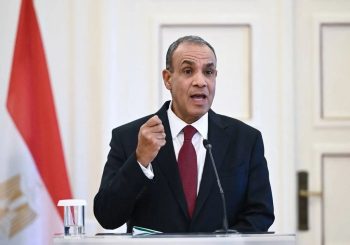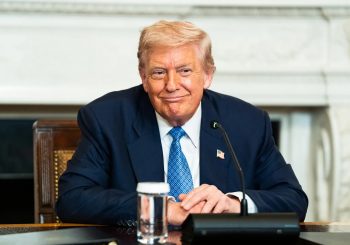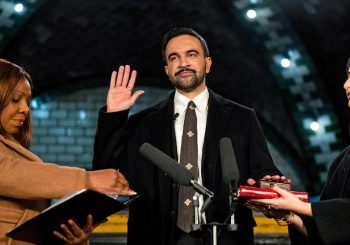As the 75th anniversary of the Nakba on 15 May passes by, historians of the Middle East would look and see a region changed many times over, sometimes positively and other times not so much. 75 years is a long time after all, yet there are certain constants persisting to this day.
Might and creating faits accomplis on the ground is by and large still king. International relations are mainly dominated by power. Palestinians’ rights, in all their aspects, are still being violated.
Checkpoints restrict their freedom of movement. Water resources are constrained by the occupation. The Palestinian economy is suppressed by Israeli oppression. What’s left of the land is split in two and constantly shrinking due to illegal settlement building. One of my former professors once described the West Bank as “Swiss cheese,” with disconnected cantons in a sea of occupied land.
The brutality of the Israeli government has become more exposed with time. The Israel Defense Forces (IDF) killed child Muhammad Al-Durrah during the Second Intifada and even tried to discredit the live broadcast of Al-Durrah’s death.
More recently, the IDF murdered renowned journalist Shireen Abu Akleh, issued a report stating there was a “high possibility” that Abu Akleh was “accidently” shot, refused to open an investigation into the issue, and then, one year later, issued an apology without taking responsibility.
This brazen impertinence, blatant violation of international law, and infringement of personal and national rights cannot go unanswered. Regional players increasing cooperation or normalizing ties with Israel must leverage their positions to guarantee Palestinian rights.
New Regional Context
After a tumultuous, tense, and conflict-driven decade initially driven by popular protests, and then taken advantage of by special interests, the Middle East and North Africa (MENA) region has been seeing a general process of reconciliation in recent years.
The 2020 Abraham Accords, normalizing relations between the UAE and Israel, and followed by normalization by Bahrain, Sudan, and Morocco, created new regional dynamics when it comes to Israel. The UAE in particular has plans for extensive economic and even military cooperation with Israel. The agreements were the first of their kind since Egypt and Jordan’s normalization with Israel.
The Al-Ula Summit led to the restoration of diplomatic relations between Qatar and the Quartet (Saudi Arabia, UAE, Bahrain, and Egypt) which had broken down four years prior. Turkey is also partaking in a reconciliation process with Saudi Arabia, the UAE, and Egypt.
Most surprisingly, rivals Iran and Saudi Arabia agreed to restore diplomatic relations last March. Moreover, Syria is being welcomed back to the fold.
While it would be dangerous to overestimate the effect of these processes, as rivalries and tension would likely remain in many areas, the region is clearly headed in a reconciliatory direction after a very exhausting decade—particularly amid an economic crisis that has affected countries across the board.
This detente includes Israel, which is eyeing further normalization agreements. The region is undoubtedly not what it was in 1948 and the political climate is different. The reality is that Israel now has relations and/or cooperation with many players in the region—which gives them a certain amount of leverage over the occupation.
The Current Situation
There are certain realities to face if countries want to effectively influence Israel’s actions. One is the fact that Israel has become a regional player now, based more on cooperation than competition and hostility—which it mostly reserves for Iran and the Palestinians.
The second point to keep in mind is that the two-state solution, where Palestinians and Israelis split the land, is all but dead. Former US president Donald Trump’s so-called Deal of the Century was preposterous because it gave Palestinians very little, but it also reflected realities on the ground. ‘Swiss Cheese’ cannot make a state, and the Israelis have no reason to give up any of the annexed land as they are not pressured by any side. Even if a Palestinian state were to be created by a series of isolated cantons, Gaza and the West Bank would not even be connected except by some sort of narrow corridor—if at all.
A third aspect, one that the Israelis must come to terms with, is that the current situation is unsustainable; apartheid, oppression, and military occupation cannot go on forever. Much of the world is outraged at a degree of impunity not belonging to this century, and the outrage, the boycotts, and the negative media coverage will only intensify from here. Moreover, Israel will never have the security and stability it so desperately craves as long as Palestinians are not granted the same stability and freedoms. This is something regional leaders have to realize so that they can address the issue head on and not be satisfied with temporary measures.
Leveraging Relations
Keeping these considerations in mind, states in the Middle East have certain tools at their disposal.
The first and easiest tool to employ is trade-offs—you give me this and I’ll give you that. The ultimate tradeoff was the ‘land for peace’ formula articulated several times in different documents such as UN Security Council Resolution 242 ending the 1967 war and, more recently, the 2002 Arab Peace Initiative.
However, the Arab Peace Initiative has taken a serious hit after the Abraham Accords, as the UAE and other countries gave peace and Israel did not give land. Moreover, the land for peace formula has become outdated, as there is no realistic amount of land Israel would give that would be sufficient for a functioning Palestinian state given Israeli faits accomplis and its aggressive settlement expansion program.
Therefore, and because ‘land for peace’ underpins a now-unachievable two-state solution, the formula should be reoriented to become ‘equal rights for peace.’
Israel is forcing its own hand into a one-state solution it is terrified of because of the demographic element where Palestinians may overwhelm Jews. Israel wants to uphold the contradictory ethnostate it claims to be a democracy.
Regional leaders should accordingly condition recognition, concessions, or increased cooperation upon providing rights to and increasing the autonomy of Palestinians, working towards a one-state solution where Palestinians are equal citizens. Such a state would likely be highly decentralized so that Palestinian or Jewish communities can govern themselves, and there must be a reconciliatory process that reduces tensions and works towards eliminating violence from society—a challenge that cannot be overstated. Perhaps South Africa’s Truth and Reconciliation Commission can serve as a model, adapted for the context. Or, at minimum, a reminder that such a task is at least partly possible.
Now that more states have relations on the highest level with Israel, and dialogue and diplomacy are increased between countries, there are more channels available to influence Israel. Regional diplomats must be very active in making their positions, and national public opinion, regarding violations of Palestinian rights and international law very clear to the Israelis. This likely already happens all the time, but with increased dialogue between certain regional players and the occupation, it becomes all the more important.
Public opinion is something that policymakers always keep in mind when it comes to Israel. Rather than be wary of it, policymakers in the Middle East should use it to their advantage as a tool to influence Israel by having honest conversations with the people and explaining all the interests involved and why certain actions were taken, but also stating in no uncertain terms that what the occupation is doing is unacceptable and that diplomatic efforts were received by Israeli obstinance. This plays into the overall strategy outlined above as part of a wide-ranging diplomatic carrot-and-stick approach to attain the goal of equal rights for the Palestinians.
Dreams or Possibility?
Of course, this is all underpinned by the idea of a one-state solution even being possible, and desired by the Palestinians, and that regional players will sacrifice some of their own interests in favor of the Palestinians’—a notion long-forgotten.
However, what policymakers in Israel and in the region seem to only recognize when there is an outbreak of violence, is that the stability of Palestine is in their long-term interests as a matter of national and regional security. Not only is global public opinion growing increasingly outraged by Israeli aggression, but the regional landscape will remain to an extent unstable until Palestinians gain their deserved rights, as their oppression creates tension with other countries such as Lebanon and Iran.
A one-state solution will ultimately have to be highly decentralized and have strong protections for minorities, seeing as the Jews would lose their dominant status in the Israeli ethnostate. Before a political solution, however, there must be reconciliation—and, more importantly, accountability—on the societal level, which is by far the most difficult challenge.
Is all this realistic, 75 years on from the Nakba? Not at the moment—but it must be discussed and written about. The more it is present in the discourse the more realistic it becomes.
The opinions and ideas expressed in this article are the author’s and do not necessarily reflect the views of Egyptian Streets’ editorial team. To submit an opinion article, please email [email protected].






Comment (1)
[…] of indigenous Palestinians to establish the state of Israel. This event is known to Palestinians as al-Nakba, or the […]